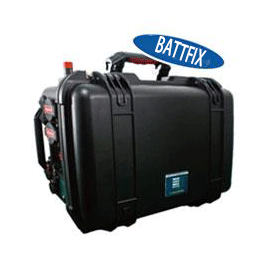How to Choose the Right Auto Battery Charger for Your Vehicle

# How to Choose the Right Auto Battery Charger for Your Vehicle
How to Choose the Right Auto Battery Charger for Your Vehicle
Choosing the right auto battery charger is essential for maintaining your vehicle’s battery health and ensuring reliable performance. With various types and features available, it can be challenging to determine which charger best suits your needs. This guide will help you understand the key factors to consider when selecting an auto battery charger.
1. Determine Your Battery Type
The first step in choosing an auto battery charger is identifying your vehicle’s battery type. Common types include:
- Lead-acid batteries (flooded, AGM, or gel)
- Lithium-ion batteries
- Deep-cycle batteries
Ensure the charger you select is compatible with your specific battery type to avoid damage and ensure optimal charging performance.
2. Consider Charger Voltage
Most automotive batteries are either 6-volt or 12-volt systems. It’s crucial to match the charger’s voltage output with your battery’s requirements. Using an incompatible voltage charger can lead to:
- Undercharging (with lower voltage)
- Overcharging and potential damage (with higher voltage)
3. Evaluate Charging Speed (Amperage)
Chargers come with different amperage ratings, which determine how quickly they can charge your battery:
- 2-10 amps: Slow charging, best for maintenance
- 10-20 amps: Medium charging speed
- 20+ amps: Fast charging for emergencies
Consider how quickly you need your battery charged and whether you’re using the charger for regular maintenance or emergency situations.
4. Look for Safety Features
A quality auto battery charger should include essential safety features:
- Overcharge protection
- Reverse polarity protection
- Short circuit protection
- Spark-proof technology
These features help prevent accidents and extend your battery’s lifespan.
5. Consider Smart Charging Technology
Modern “smart” chargers offer several advantages:
- Automatic voltage detection
- Multi-stage charging (bulk, absorption, float)
- Maintenance mode for long-term storage
- Diagnostic capabilities
While smart chargers may cost more initially, they often provide better battery care and convenience.
6. Portability and Ease of Use
Consider where and how you’ll use the charger:
- Compact, lightweight models for easy storage
- Models with carrying handles for portability
- Clear displays and intuitive controls
- Long enough cables for convenient connection
7. Brand Reputation and Warranty
Choose chargers from reputable manufacturers that offer:
- Positive customer reviews
- Reliable customer support
- Warranty coverage
Investing in a quality charger from a trusted brand can save you money and headaches in the long run
Keyword: auto battery charger

